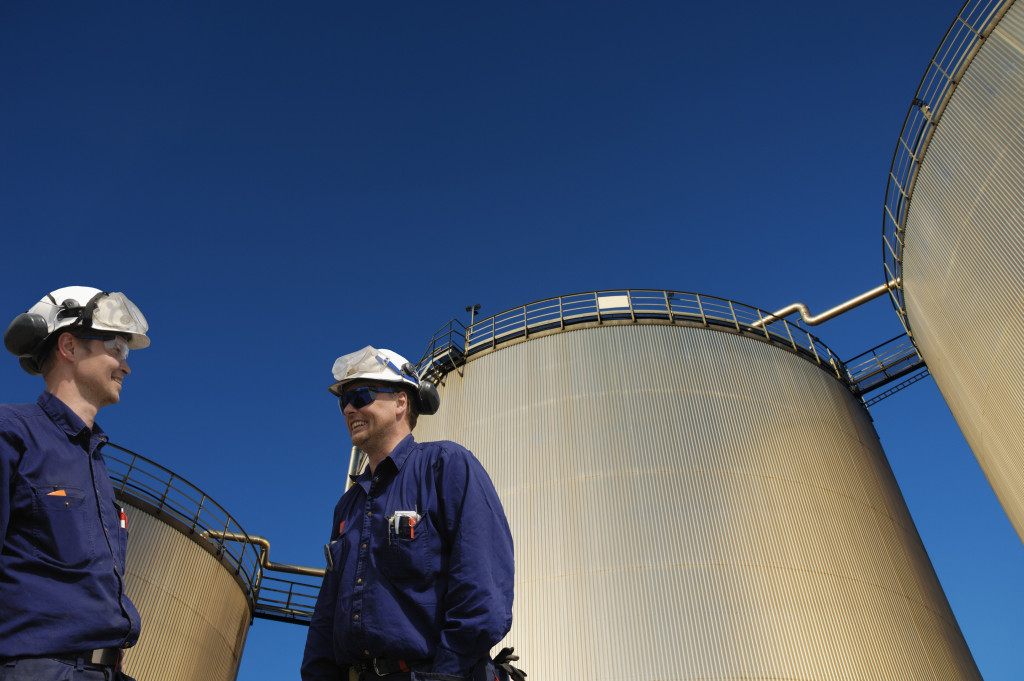- Regular inspections and continuous monitoring are crucial for maintaining operational efficiency and preventing costly breakdowns in a petrochemical plant.
- Timely repair and maintenance practices and predictive analytics prolong equipment longevity and enhance operational safety.
- Regular employee training is key for efficiently handling complex distillation processes and staying updated with the latest operational practices.
- Adopting energy-efficient processes and technologies reduces a plant’s environmental footprint and aligns with growing environmental regulations and public expectations.
As an operator of a petrochemical plant, ensuring smooth distillation processes is of utmost importance to you. It not only streamlines your operations but also maximizes productivity and profitability. The key to achieving this lies in maintaining optimal conditions within your distillation units, implementing regular checks, and promptly addressing any identified issues to prevent costly downtimes. Remember, a well-run distillation process is your ladder to operational excellence.
Regular inspection of distillation units
Regular inspection of distillation units is a critical component of maintaining operational efficiency. This involves routine checks of the unit’s key systems and components for signs of wear, damage, or inefficiency. Inspections should focus on areas such as heat transfer systems, pressure vessels, and fractionating columns, to name a few.
Particular attention should be given to valves and seals, as these are prone to leaking and can lead to significant losses if not promptly addressed. Monitoring temperature and pressure levels is also vital to ensure optimal operation. Regular inspections allow for early detection and resolution of issues, minimizing the risk of costly breakdowns and ensuring your operation can continue functioning at peak efficiency.
Continuous process monitoring
Continuous process monitoring is an essential strategy in maintaining the optimal functionality of your petrochemical plant, allowing for real-time tracking of operational parameters and immediate response to any deviations. Here are some tips:
Maintain optimal operating conditions

Maintaining optimal operating conditions is a key factor to consider as it significantly drives the efficiency and longevity of your petrochemical plant. It involves striking the right balance between the distillation units’ temperature, pressure, and flow rates. Variations in these operational parameters can lead to inefficiencies, increased energy consumption, and system failure in the worst case.
By deploying advanced automation and control systems, you can monitor these parameters in real time, swiftly adjust them as needed, and ensure the smooth operation of your plant. These systems can also provide predictive analytics that allows you to anticipate issues before they occur, enabling preventative maintenance and reducing downtime. Remember, a well-maintained operation isn’t just about resolving issues as they arise, but predicting and preventing them to ensure continuous, optimal performance.
Use of high-quality packing materials
High-quality packing materials, particularly those used within the distillation columns, can greatly enhance the efficiency and cost-effectiveness of your petrochemical plant. One such material is the carbon Raschig ring, renowned for its high heat and chemical corrosion resistance, making it ideal for harsh distillation environments.
Utilizing high-quality carbon Raschig rings can significantly improve mass transfer efficiency in your distillation process, maximizing product yield and quality while minimizing energy consumption. Their robust nature reduces the need for frequent replacements, lowering maintenance costs and minimizing operational disruption.
Furthermore, their superior performance contributes to more consistent and reliable distillation processes, ultimately underpinning the success of your petrochemical plant operations. Hence, investment in high-quality packing materials like carbon Raschig rings is an investment in your facility’s future productivity and profitability.
Timely repair and maintenance
Timely repair and maintenance of the equipment in your petrochemical plant cannot be overstated. Proactive maintenance routines, such as cleaning, lubrication, or minor adjustments, contribute significantly to the longevity and efficiency of your distillation units. It’s crucial to promptly address any abnormalities or mechanical issues to mitigate any potential impact on operations.
Leveraging predictive analytics from your automated monitoring systems can help schedule maintenance activities effectively, reducing the likelihood of unexpected breakdowns. Furthermore, ensure that any repair works are carried out by skilled technicians who understand the intricacies of petrochemical operations. By doing so, you are not only assuring the optimal performance of your plant but also enhancing its safety standards, thus contributing to a healthier bottom line and a safer working environment.
Regular employee training
Regular employee training is crucial to the effective operation of your petrochemical plant. A well-trained workforce can efficiently handle complex distillation processes, promptly identify potential issues, and perform necessary maintenance routines. Through systematic training programs, employees can stay up-to-date with the latest operational practices and safety protocols, ensuring not just efficiency but also the safety of the plant environment.
Furthermore, training also enhances the understanding of automated systems and the interpretation of predictive analytics. This collective knowledge can significantly contribute towards cost-saving, enabling timely decision-making and reducing the likelihood of expensive breakdowns. Therefore, investing in regular and comprehensive employee training is a strategic move that yields long-term benefits in terms of productivity and safety.
Energy efficiency

Energy efficiency is a cornerstone of sustainable petrochemical plant operations. Adopting energy-efficient processes and technologies can drastically reduce your plant’s energy consumption, lower CO2 emissions, and improve its environmental footprint. Implementing heat recovery systems, for example, reuses waste heat from distillation units, reducing the demand for fresh heat sources.
Additionally, energy-efficient practices like regular maintenance of insulation materials and routine checks for steam leaks can further enhance your energy savings. By embracing energy efficiency, your plant becomes more sustainable and cost-effective and aligns with the growing environmental regulations and public expectations for greener industrial practices. Hence, energy efficiency is not just about cost savings—it’s a strategic choice determining your plant’s market reputation and long-term viability.
In summary, your path to operational excellence in your petrochemical plant lies in robust inspection routines, continuous monitoring, optimal operating conditions, high-quality materials, prompt maintenance, employee training, and energy efficiency. Take action now to implement these practices and set your plant on a course for sustainable success and profitability.

